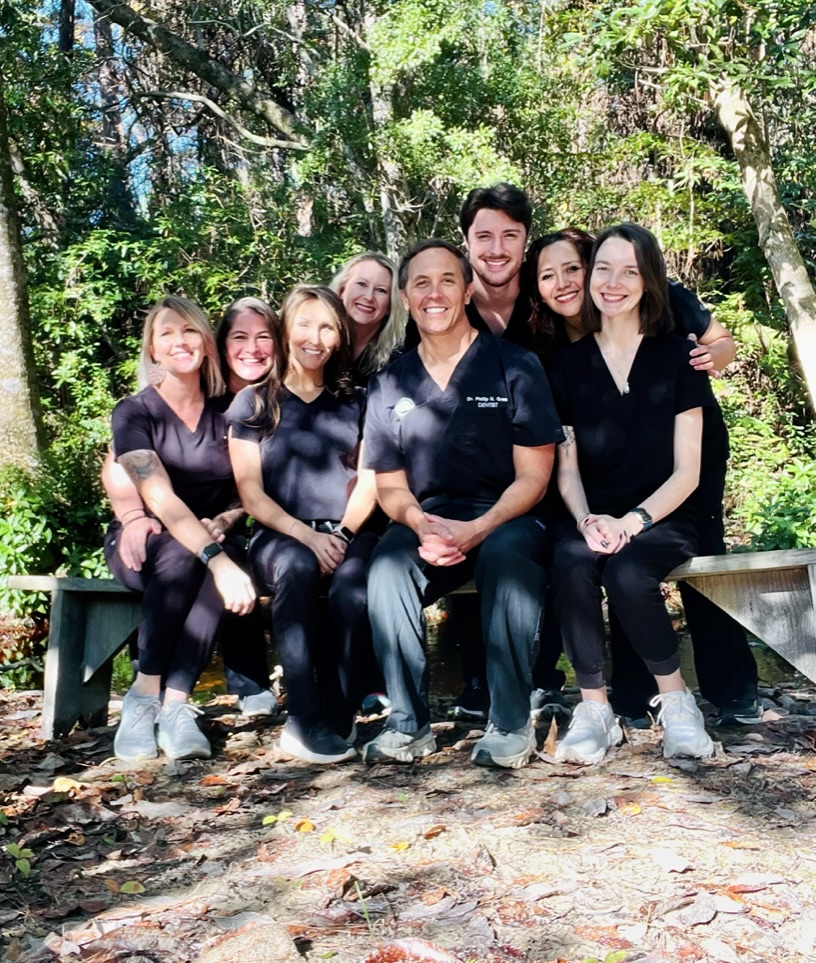Fairhope AL Dentist Dry Socket
After tooth extraction, a blood clot naturally forms on the empty tooth socket to protect the exposed tissues, nerves, and jawbone and also to facilitate the healing process. However, there are cases where the blood clot is not properly formed or dislodged from the tooth socket, it can cause what is known as a dry socket.
Dry socket, also known as alveolar osteitis or fibrinolytic alveolitis, is the most common complication of tooth extraction and causes pain or infection which usually lasts and is felt from 3 to 4 days after the tooth has been removed. This dental problem is characterized by severe pain and delayed healing time to recover. People suffering from dental dry sockets also have an increased danger of infection and can also determine the treatment required to replace the extracted tooth.
Alveolar osteitis or fibrinolytic alveolitis is the hole in the bone where a tooth has been removed, exposing the nerves, tissues, and bone to air, food, fluid, and anything that enters the mouth. This can result in severe pain and infection that can last for days. The following individuals are prone to suffer alveolar osteitis after their tooth has been extracted:
Signs and symptoms
It is enough for your Fairhope Al Dentist or oral surgeon to suspect a dry socket after severe pain following tooth extraction. You will be asked about other symptoms and he or she will examine your mouth to check if you have an exposed bone or a blood clot in your tooth socket. An X-ray might also be done on your teeth and mouth to determine the severity and exclude other conditions.
Signs and symptoms may include the following:
Causes
Dry sockets can happen in about 3-5% of tooth extractions and are most common after extraction of impacted wisdom teeth. There is no accurate explanation as to what causes dry sockets, but several factors may be included such as:
Treatment
Treatment and drugs for dry sockets are mainly intended to reduce the pain and other symptoms but they won’t speed up the healing. Diagnosing a dry socket correctly is important so as not to confuse it with other dental pains like root canal issues. As soon as treatment has been done, relief will come in as little as 5 minutes, while other symptoms will go away in the next few days. Total healing usually takes from 10-14 days. Several dry socket treatments include:
Prevention
Several things can be done to reduce the possibility of a dry socket after a tooth extraction. Your Fairhope Al Dentist will give you instructions to ensure the proper healing and prevention of dry sockets. These guidelines may include:
Summary:
Every dentist is aware that there is always a chance that their patient will have a dry socket after a tooth extraction so don’t hesitate to ask them for help if you think you are suffering from one. They must extend assistance in providing any follow-up dental care needed to lessen the complications of dry sockets and improve your dental health.
Even though dry sockets are recognized as early as the late 1800s, medical scientists are still looking for a surefire way to prevent it other than with medications like antibiotics before and after surgery. This issue remains debatable and others argue that using antibiotics for treatment may trigger other problems, especially health issues that concern antibiotic-resistant bacteria.
On the lighter side, knowing the signs and symptoms that can lead to dry socket is important and if you find that you are among the 3-5% that might have it, contact your Fairhope Al Dentist immediately and take all the necessary action needed to help in the prevention or treatment of it. Your dentist might have to flush out the socket to clean it of any particles and apply the necessary medicated dressings to protect the socket. He or she can also prescribe several medications to help reduce or alleviate the pain and swelling. However, your dentist can give you instructions on how to care for it at home and all will be well if you follow his or her self-care advice.
Your Fairhope Al Dentist is the best person to advise if you have a dry socket and can also give the best treatment to care for it.
Visit us for expert care:
Sweet Water Dentistry
📍 5915 Sweetwater Cir, Fairhope, AL 36532
🌐 sweetwatersmile.com
📞 Call or Text: (251) 210-2773
Follow us on Facebook and Instagram for the latest updates and special offers!


